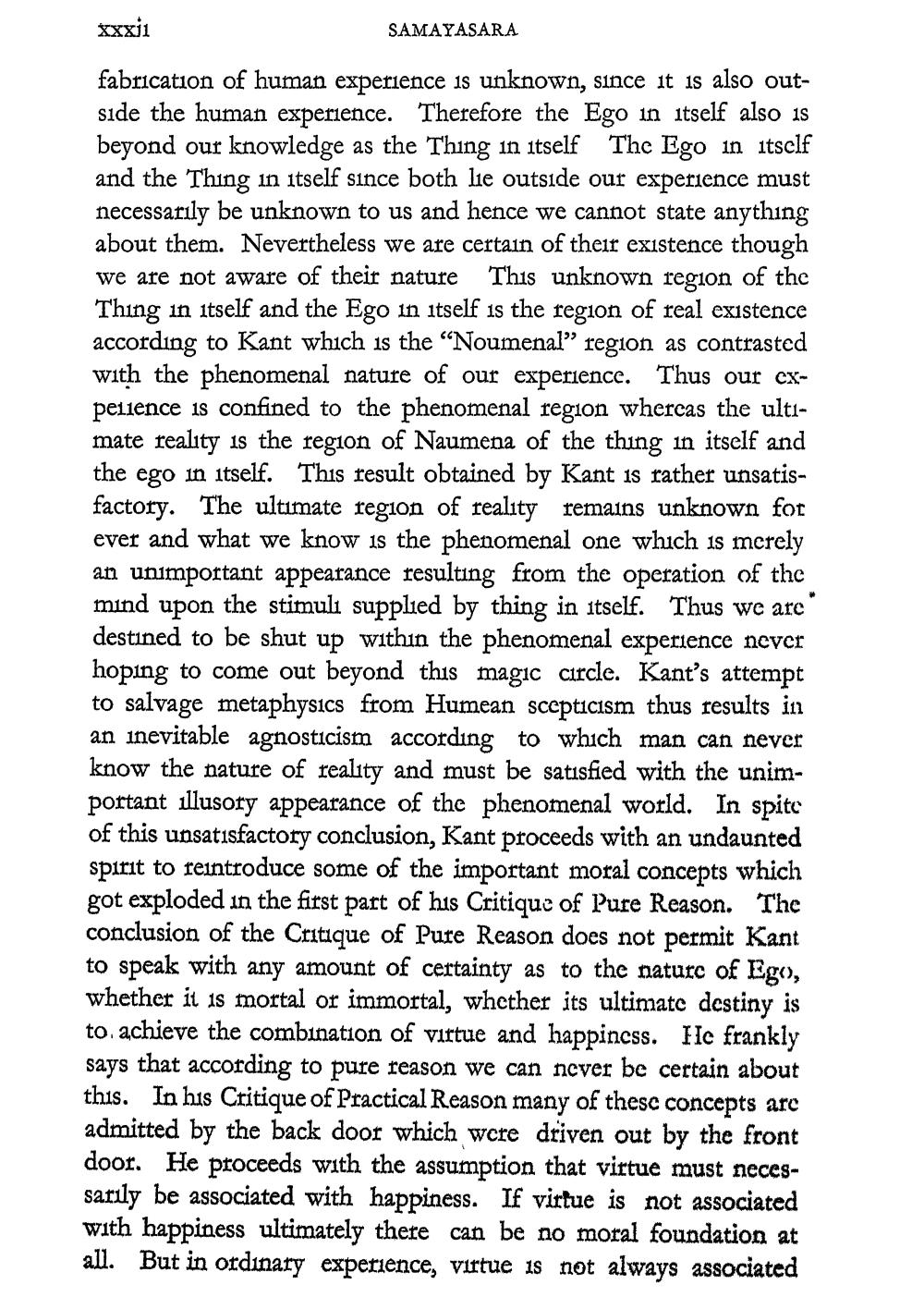________________
XXXj1
SAMAYASARA fabrication of human experience is unknown, since it is also outside the human experience. Therefore the Ego in itself also is beyond our knowledge as the Thing in itself The Ego in itself and the Thing in itself since both lie outside our experience must necessarily be unknown to us and hence we cannot state anything about them. Nevertheless we are certain of their existence though we are not aware of their nature This unknown region of the Thing in itself and the Ego in itself is the region of real existence according to Kant which is the "Noumenal” region as contrasted with the phenomenal nature of our experience. Thus our experience is confined to the phenomenal region whercas the ultimate reality is the region of Naumena of the thing in itself and the ego in itself. This result obtained by Kant is rather unsatisfactory. The ultimate region of reality remains unknown for ever and what we know is the phenomenal one which is merely an unimportant appearance resulting from the operation of the mind upon the stimuli supplied by thing in itself. Thus we are destined to be shut up within the phenomenal experience never hoping to come out beyond this magic circle. Kant's attempt to salvage metaphysics from Humean scepticism thus results in an inevitable agnosticism according to which man can never know the nature of reality and must be satisfied with the unimportant illusory appearance of the phenomenal world. In spite of this unsatisfactory conclusion, Kant proceeds with an undaunted spirit to reintroduce some of the important moral concepts which got exploded in the first part of his Critique of Pure Reason. The conclusion of the Critique of Pure Reason does not permit Kant to speak with any amount of certainty as to the naturc of Ego), whether it is mortal or immortal, whether its ultimate destiny is to achieve the combination of virtue and happiness. IIc frankly says that according to pure reason we can never be certain about this. In his Critique of Practical Reason many of these concepts are admitted by the back door which were driven out by the front door. He proceeds with the assumption that virtue must necessarily be associated with happiness. If virtue is not associated with happiness ultimately there can be no moral foundation at all. But in ordinary experience, virtue is not always associated




